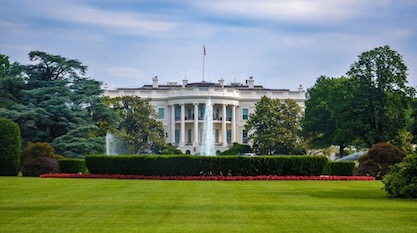 Education
Education
 Free Speech
Free Speech
Free Speech on Campus: Considering State and Federal Action


In March, President Trump issued an executive order calling for free speech on university campuses as a requirement for receiving federal research funding. In order for this order have teeth, several agencies would need to comply and put systems in place to carry it out. In my work for the Center for Science & Culture, I deal regularly with abridgements of academic freedom and free speech — the crisis is real, not least when it comes to science. Will this executive order work?
Things get messy when considering who should regulate, given the Federal Government’s extensive funding provided for research at state and local institutions. But unravelling that knot is not what I wish to do here. Rather, I’d like to make the case that some of the best ways to uphold free speech come from state and local action.
The Extra Mile
First, state residents and legislators may be alumni or they may have sent sons and daughters to these institutions. They have a vested interest in the integrity of these universities that federal regulators don’t. I grew up in a neighborhood with a block watch, and at times mail theft, planned city zoning changes, and other issues came up. My neighbors have vastly varying political and religious viewpoints and income levels, but the neighborhood always came together. I remember an all-neighborhood meeting with the mayor in attendance, as well as my family going to city hall with other neighbors to testify. The city council members did not have as clear ideas about how to further the best interests of the neighborhood as did the community itself. In the same way, community members are likely to go the extra mile to enhance the quality of their university and the education it provides.
Second, public universities are state and local entities, not federal ones. Compared with federal legislation and federal regulation, decisions at the state level are likely to be much more responsive to change and constituent opinion. One reason for this is the vast amount of work federal policymakers and regulators may be dealing with, and the likelihood that they may have no reason to prioritize any particular institution in your own state. People are more likely to be able to influence policies at the state or local level — one easy reason for this is that the ratio of officials to constituents/people they serve is much higher at state and local levels than at the Federal Government level. Another reason is that one can access local officials much more easily — stop by their offices in person, or schedule a phone call, etc. Since many local and state level officials are elected, they try to make themselves available to constituents. The Federal Government is much less accessible to the man on the street.
An Invitation to Get Involved
Perhaps you find yourself concerned about free speech on the public university campuses in your state. Maybe your son or daughter is a student, and knows there is something he or she can’t say in class, or propose to do with a student group, that would be perfectly acceptable at some private institutions. I encourage you to become involved. Learn as much as you can about the climate at your local public university, then talk to your legislators about free speech and academic freedom. For more information, see the Free Science website, and in particular our Student Academic Freedom in Science resolution.
There is no easy fix here. The President’s signature on a piece of paper won’t restore open inquiry on campuses. What’s needed is effort and energy at the state and local levels. The good news is that you can play a part in making a difference!
Photo credit: David Everett Strickler via Unsplash.
